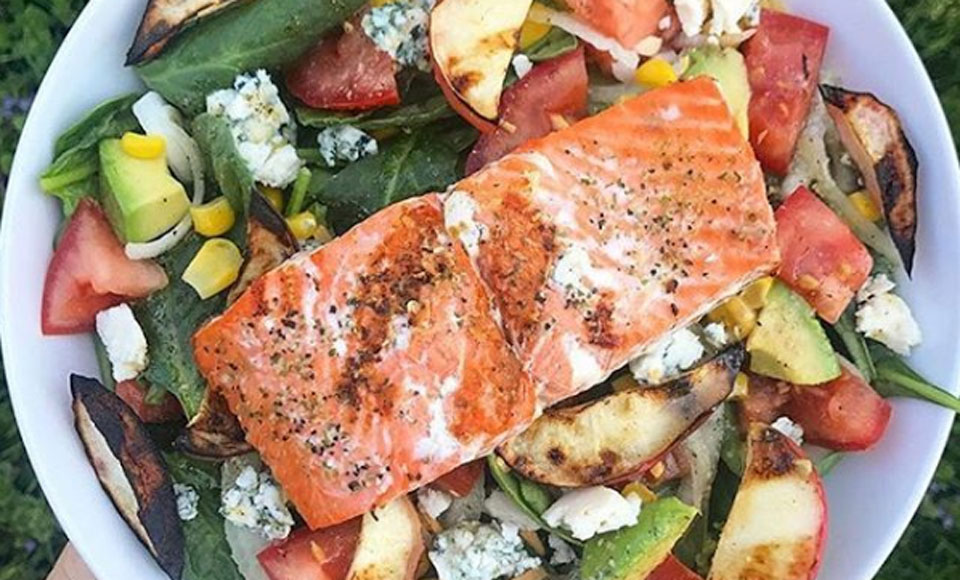When you start shedding more hair than your dog it’s time to take a good hard look… not at yourself, obviously, but at your diet. Why? Because what you eat can affect the speed at which your hair grows, where your hair grows and the overall quality of your mop.
Crucially for your next month’s shopping list, certain proteins, fats, vitamins, and minerals are especially important for strong, healthy hair. So if you’ve been obsessively grooming by day and Googling “how to rock a combover” by night, it might be time to consider what you put in your mouth (and your internet history).
Fortunately, Medical News Today just compiled a report, drawing on the most up-to-date science, outlining the top five foods for hair growth.
Now, to manage your expectations, remember this: while the changes you see while introducing these foods into your diet may be relatively pronounced if you currently have a vitamin deficiency (even in this case it may take a while to see positive results), if you are already getting all the minerals you need; eating these foods will do very little.
However, as precious few of us have a team of nutritionists dictating our every mouthful, it’s quite possible your diet is currently more ‘gleaming dome’ than ‘picture perfect’.
So whether you want to keep that receding hairline at bay as long as possible, or you simply want longer, stronger hair, here are five foods that might help you make it happen.
Eggs
View this post on Instagram
There’s been some controversy over whether biotin really boosts hair growth. Whatever the case, this supposedly ‘magical’ mineral is found in both expensive dietary supplements for hair growth and eggs.
Seeing as the jury is still out—we’d vote for the cheap, tasty option. Especially as it (eggs) also contain other compounds that can boost hair growth, including L-lysine and vitamin D.
Brazil Nuts
View this post on Instagram
As reported by Medical News Today, “Brazil nuts are an excellent source of selenium, a mineral that may help boost hair growth.”
Scientists believe this is because newly forming hair takes up selenium after receiving trace elements from the blood.
However, don’t go overboard with your Brazil nut munching; too much selenium can cause brittle hair and hair loss, along with nausea, skin rashes, and nervous system problems.
Ouch.
So take note of the recommended upper limit for selenium, which—in adults—is 400 micrograms (about four Brazil nuts) per day.
Fatty Fish
View this post on Instagram
Sure: healthy fats are an integral part of every (healthy) diet, and omega-3 fatty acids are good for the heart, skin, and eyes as well as the hair.
But having a healthy heart won’t help your Tinder profile pic.
If growing your hair is your reason for consuming endless salmon, you’ll be pleased to know this kind of fish is a good source of omega-3 and vitamin D, which both animal and human studies have shown may boost hair health.
The richest fish sources of omega-3 fatty acids, according to Medical News Today, are:
- Salmon
- Mackerel
- Tuna
- Herring
- Sardines
Foods Fortified With Vitamin D
View this post on Instagram
As reported by Medical News Today, “Some research suggests that vitamin D may help improve hair growth.”
Also.
“Vitamin D is also important for muscle, nerve, and immune system functions.”
While they have their sugary drawbacks, many processed (and tasty) snacks are Vitamin D fortified, including:
- Breakfast cereals
- Orange juice
- Yogurt
- Margarine
- Soy drinks
L-Lysine Sources
View this post on Instagram
Numerous studies (see: here and here) have suggested amino acids like L-lysine can help promote hair growth.
This is not surprising, as L-lysine is present in the hair’s root, and responsible for your hair’s shape and volume.
As Medical News Today points out, “An L-lysine deficiency can cause hair loss, but getting enough of this amino acid can prevent this issue and promote regular hair growth.”
Fortunately, L-lysine exists as a dietary protein in some sumptuous foods including:
- Meat
- Eggs
- Beans
- Lentils
- Nuts
- Spirulina
